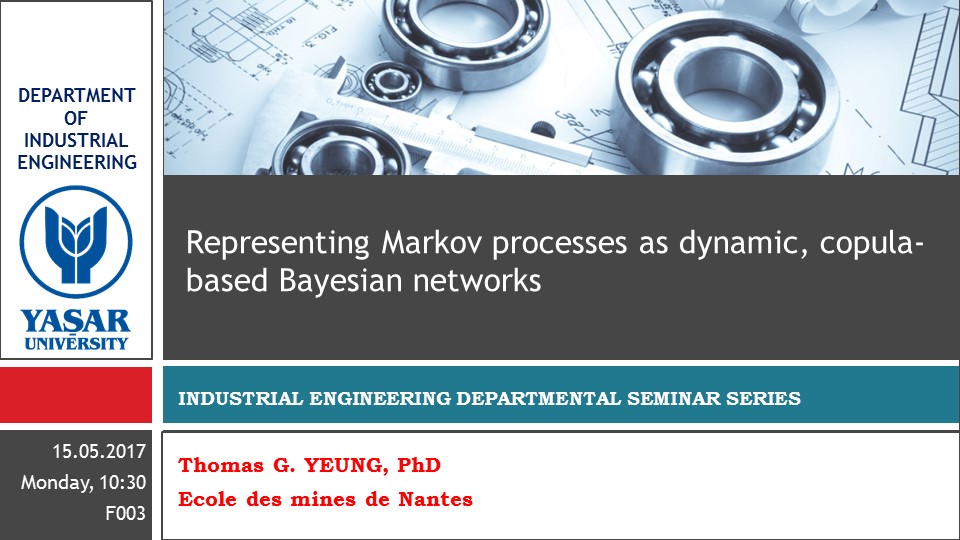Seminar: Thomas G. Yeung “Representing Markov processes as dynamic, copula-based Bayesian networks”
In multivariate (high-dimensional) statistics, recent attractive approaches include copula-based graphical models and specifically so-called pair-copula Bayesian networks. Their attractiveness is largely due to the flexibility that copula models provide, whereby the marginal distributions can be modeled arbitrarily, and any dependence captured by the copula. However, very little attention has been given for these models to fit within a full probabilistic framework and for which inference could desirably be used. In this paper, we first prove that any k-th order Markov process can be represented as a dynamic pair copula-based Bayesian network. Dependence is formulated as (conditional) bivariate time-copulas derived from the Markov process as well as the corresponding (conditional) rank correlation. Second, we explicitly show the requirements in order to perform analytical conditioning. We motivate this work through a bridge degradation application and illustrate our findings through an example focused on Brownian motion.

